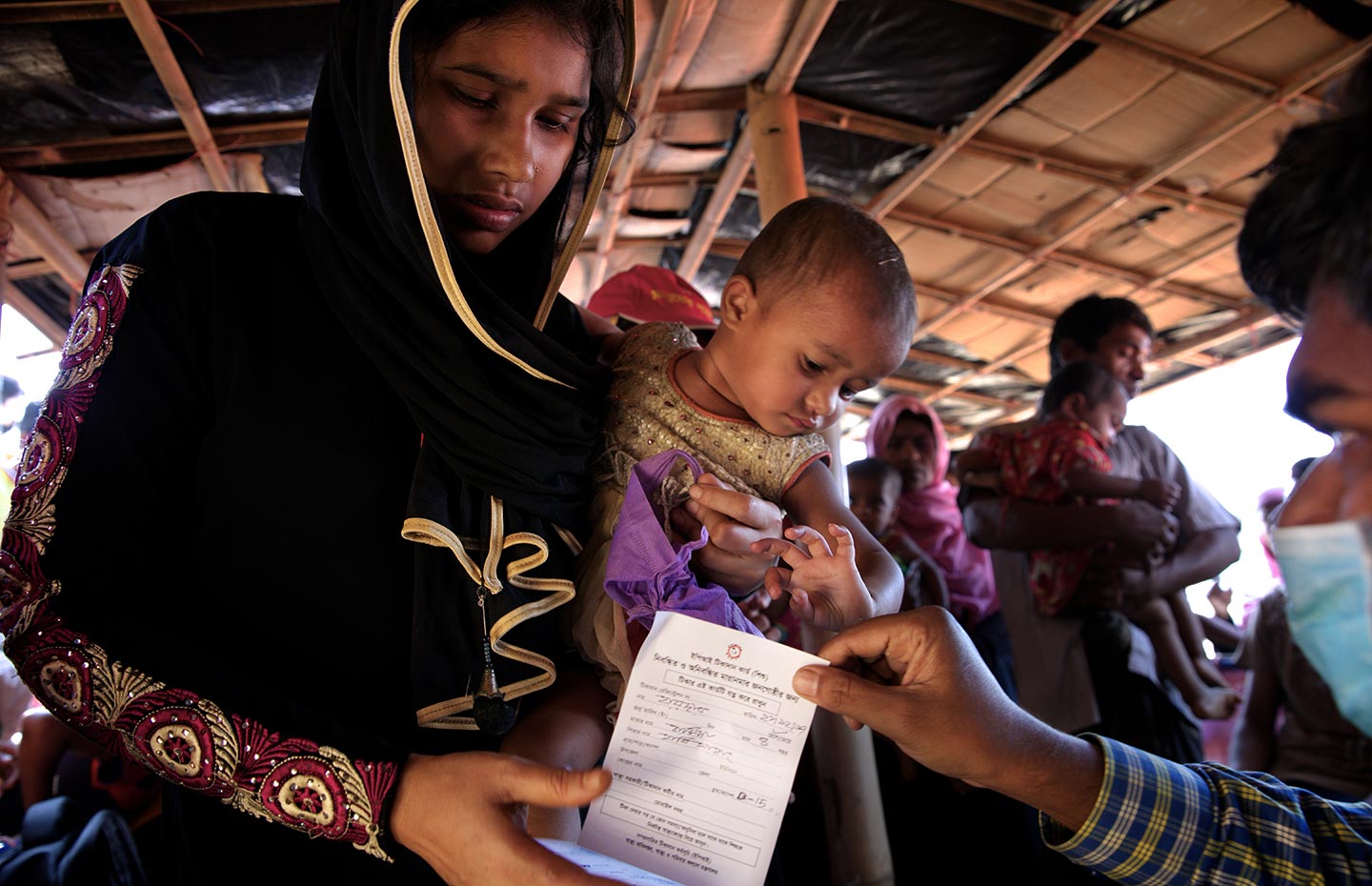Countries facing fragility/emergencies or hosting refugees make up a growing share of Gavi’s country cohort. In these circumstances, governments may find it difficult to access or effectively use Gavi support. This can cause large numbers of children to go unprotected from vaccine-preventable diseases, with a lasting health impact. To address this, the Gavi Board approved the fragility, emergencies and refugees policy in June 2017.
WHAT IS THE PURPOSE OF THE POLICY?
The policy allows Gavi to adjust its support and processes to better meet each country’s specific needs, working in close collaboration with partners and humanitarian actors.
By helping Gavi to identify a sub-set of countries most affected by fragility, it enables us to offer “flexibilities" in our regular processes and requirements. Such flexible approaches may be programmatic, administrative or financial in nature and are designed to lighten processes, take into account the needs of vulnerable populations, build resilience and maximise Gavi’s impact.
These and other flexibilities can also be extended to Gavi-supported countries facing humanitarian emergencies or hosting refugees.
WHEN IS THE POLICY APPLIED AND HOW DOES IT WORK?
Fragility: the policy identifies countries facing fragility based on three international classifications: Fund for Peace Fragile States Index, OECD States of Fragility and the World Bank harmonised list of fragile situations. These take into account political, economic, environmental and social instability, as well as public sector management and social inclusion. If a Gavi-supported country is classified as fragile, Alliance partners will assess and discuss the need for flexible approaches.
Emergencies: WHO and United Nations classifications serve as reference points and early warning signs to help identify Gavi-supported countries facing emergencies – natural or man-made. Flexibilities are typically granted for a one-year period, but may be extended if the situation continues.
Refugees: Gavi encourages governments of Gavi-supported countries to include refugees in their planning for routine immunisation services. To facilitate this, the policy includes a number of potential flexibilities for Gavi-supported countries that host refugees.
WHEN WAS THE CURRENT POLICY APPROVED AND WHEN WILL IT BE UPDATED?
The current policy was approved by the Gavi Board on 15 June 2017 and came into effect on 1 July 2017. It replaces the “fragility and immunisation policy” approved in December 2012. The policy will be reviewed and updated as requested by the Gavi Board.

